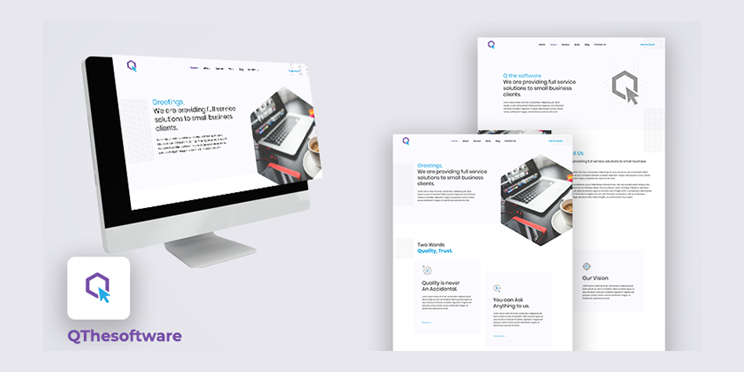PHP is one of the leading choices for developing web applications. Many PHP application frameworks have made their way into the market with their growing popularity.
Lately, the comparisons have been between the Laravel and Codelgniter as the best PHP frameworks. A good comparison between the two based on their performance, pros, and cons can help clarify the subject.
Introduction to Laravel and CodeIgniter
Laravel
Laravel is a leading open-source PHP development framework based on MVC architecture for application development. It is used to develop the complete backend of any web application. Web portals, full-stack applications, and many other features can be developed using Laravel.
Codelgniter
Codelgniter is also a PHP development framework used to develop fully functional web applications. It is preferred by the developers who choose to skip the MVC architecture in their development. It is compatible with third-party extensions that can be integrated to add complex functionalities to the web application.
Market Usage Statistics – Laravel vs. CodeIgniter
Laravel Statistics:
- It is successfully used across multiple verticals, including computer electronics, science & education, arts & entertainment, and law and government, with a maximum of 5.37% popularity in the science and education sector.
- About 1,493,912 websites are using Laravel as the development framework
Codelgniter Statistics:
- It is successfully used across multiple verticals, including computer electronics, science & education, arts & entertainment, and law and government, with a maximum of 5.57% popularity in the computer & electronics sector.
- About 1,458,078 websites are using Codelgniter as the development framework
Pros and Cons of Laravel and CodeIgniter
- Laravel
- Pros
- Latest PHP features: The latest features of PHP language, such as shorter array syntax and anonymous functions, are incorporated in Laravel. The developer is at the advantage of providing the best and latest features in the web application.
- Large community support: A large community of developers is actively involved in adding codes and improvements to the code repository. In case anyone providing Laravel development services is stuck in the development process, they can contact the community to get the issues fixed.
- Command Line Interface: One of the significant advantages is that the developers can use the integrated Command Line Interface to build skeletal codes. Database management and other recurring tasks can be automated using this CLI.
- Reverse routing: Links can be created for the named routes used in reverse routing. Any changes in the routes are automatically updated at all the specified locations.
- Cons
- Limited inbuilt support: The lightweight nature of Laravel makes it a deficit of in-built support. Third-party tools are integrated to bring in the desired features in the application.
- Problematic upgrades: Laravel has a history of facing issues while upgrading. It requires attention to detail to execute promotions and changes for long-term support.
- Heavy documentation: The documentation can be prosperous for the new Laravel developers. The contributing community is very large, and there is a refined library and documentation for use.
- Pros
- Codelgniter
- Pros
- Easy bug handling: CodeIgniter development services get help from the simple User Interface in finding and fixing bugs in the codes. There are directions for bug finding and debugging the bugs.
- Lighter footprint: It is considered a very lightweight framework that makes it very fast. It adds to the performance optimization of the web application.
- Built-in security features: CodeIgniter provides the developers with many features while coding to help them take care of warnings such as SQL injection and remote code execution.
- Cons
- Absence of exhaustive libraries: Web application development using CodeIgnitor uses several libraries. After installing the libraries required by the application, developers can further increase the libraries.
- Poor code maintainability: The developers have to give extra effort to modify and maintain codes due to the absence of modular code separation.
- Pros
Use cases – Laravel vs. CodeIgniter
Laravel use cases
- Enterprise-level applications
- Applications with backend data management
- IoT infrastructure
- High-level security applications
- E-learning web applications
CodeIgniter web applications
- Applications for e-commerce websites
- Applications for invoice management
- Payroll web application
- On-demand streaming
- SaaS-based applications
Popular Applications Built With Laravel And Codeigniter
Top applications built with Laravel
- Invoice Ninja, an open-source invoicing solution
- Barchart, a stock and cryptocurrency research platform
- Laracasts, website to improve website development skills
- Laravel.io, knowledge sharing laravel community portal
- October CMS, a Content Management System
Top applications built with CodeIgniter
- Firstcry, a kid’s apparel brand
- Textify
- Readmanganato.com, a website for manga readers
- Philippine Airlines Inc.
- Creative genius Inc.
Laravel Vs. Codeigniter Performance Comparison
- Scalability: Both the development frameworks can be used for scalability. Using the best approaches such as advanced caching methods, selective scaling, and load balancers can help any website scale efficiently.
- Testing: The robust testing documentation provides all the knowledge and tools to run tests at several levels. Testing can also be performed in the CodeIgniter framework with the help of a unit-testing class where you can write tests, run them and generate results.
- Community support: Both the frameworks enjoy a large community of developers who continuously work on improving the code and resolving the bugs.
Overall, both frameworks offer similar benefits. However, the offering varies with architecture pre-defined Laravel, making backend development easier.
Conclusion
Both the frameworks, Laravel, and CodeIgnitor, hold their significance. However, Laravel can be preferred for developing large and complex websites that need a defined architecture for handling large datasets.
On the other hand, CodeIgniter is selected for fast websites such as eCommerce websites that demand more rapid development and execution. We are one of the established web development companies with esteemed clientele.
Our experts keep quality and on-time delivery as the priority. Connect with us to hire CodeIgniter and Laravel developers to build the best web application at affordable rates.
Frequently Asked Questions:
Q1. What is Laravel Framework?
A. Laravel is a leading open-source PHP development framework based on MVC architecture for application development. It is used to develop the complete backend of any web application.
Q2. What is Codelgniter?
A. Codelgniter is also a PHP development framework used to develop fully functional web applications. It is preferred by the developers who choose to skip the MVC architecture in their development.
Q3. What is CodeIgniter and how it works?
A. CodeIgniter is a PHP MVC framework for quickly creating web applications. CodeIgniter includes libraries for connecting to databases and doing tasks like as sending emails, uploading files, managing sessions, and so on.
Q4. What is Laravel framework used for?
Laravel is an open-source, PHP-based back-end framework for creating a variety of unique web applications. It’s a server-side framework that manages data using the Model-View-Controller (MVC) design pattern, which divides an application’s back-end architecture into logical sections.




